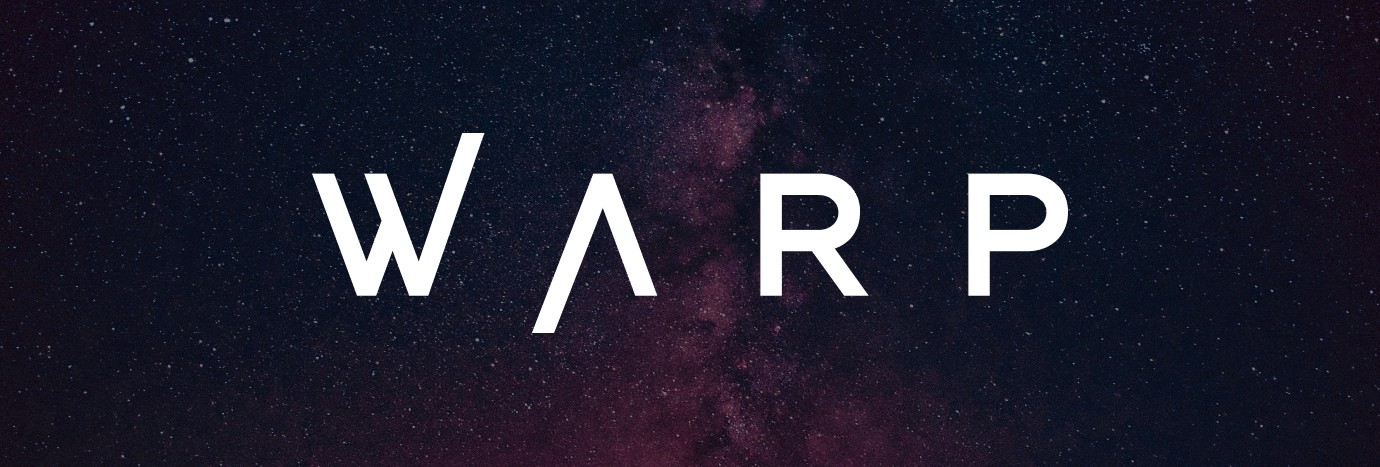AM014 – Founding a Startup as a Digital Nomad with ADHD

Yeah, this is going to be one of those pieces.
Hi, my name is Leandro. If you're reading this, chances are you already have met me online on Twitter or Mastodon, LinkedIn, or even Instagram. Less of a chance you've seen me in person lately because of COVID, but you may remember me from JSConf EU 2019.
I got my ADHD diagnostic back in March 2022. Tho I had had run-ins with doctors before, it had never come up on paper anywhere. I was diagnosed as early on-set, after a series of anxiety attacks I had while (you guessed it) ✨overworking✨.
You'd say "Nah, I'm too old to be neglecting my mental health like this, this wouldn't happen to me". Hey, I said the same thing. Then one day I committed to something too aggressively, neglected a bunch of fundamental things like proper eating and sleeping. 3 weeks later, there I was.
Thanks to @frescosecco for helping me realize the "anyways" in the next line is missing a lot of important context.
Anyway, these days I'm starting Warp, a developer tooling company based in Stockholm. We almost call it The Developer Tooling Company of Stockholm.

Why start a company? Why start this company? Because building and testing software is terrible. It is mostly optimized for onboarding and not for sustainable development. World-class tooling in the space is only available to billion-dollar companies. And frankly, because I am tired of waiting on computers.
I'm never getting back any minute spent rerunning tests on CI.
Sure I get paid for them, but what do they forward? Who's better off for them? Nobody. I ship more slowly, my teammates get stuck, the planet burns a little more, the cost-of-opportunity goes up, and the company ends up hiring more people to do the same work.
Well maybe CI providers benefit because they sell you those CPU minutes, but other than them, absolutely nobody else wins here.
Warp's goal is to rebuild from the ground up how we build and test software, to commoditize what's currently a premium, and get everybody shipping great software at the speed of thought. Read more in our blog.
Distractions, Feedback loops, and Neurodivergence
A big struggle for ADHDers is keeping a stable focus.
As the meme goes, sometimes I do 30 minutes of work in 8 hours, and sometimes I do 8 hours of work in 30 minutes. Hyperfocus is one of those ADHD things that looking back at my career has helped me tremendously, but it isn't a state I get to shift into and out of on command.
So over the years, I've applied an unconscious selection bias to most of my tools. I routinely removed all possible distractions from my screen and picked the tools with the fastest response times.
I didn't realize I was doing this until recently, but I switched from Visual Studio to Sublime Text to Vim to Neovim. I introduced full-screen, GPU-accelerated terminals, going from Terminal.app to iTerm2 to Kitty. I've added multiplexors like screen and tmux (and more recently zellij).
So why would I do this? Even a small amount of noise can be distracting, and if the feedback I get from my actions is over a certain threshold, I will struggle to focus. Or worse, I will get distracted altogether and jump onto something else. You can imagine how this impacts my effectiveness as a developer.
But when I use tools that align with my needs, even if it is unintentional, I have much better chances of entering hyperfocus and I can do my best work.
Warp is built exactly to fit these needs. It figures out the smallest amount of work that needs to be done to accomplish a task and does it as fast as your hardware allows it. Better yet, it will never redo a task that doesn't need to be redone.
Founding a Startup with ADHD
Starting a company is a ton of fun, and it provides me with an endless stream of novel things to keep my interest-based nervous system engaged.
In the past 4 months of trying to bootstrap Warp I've learned new things about how to read markets, storytelling, what it's like to be a sales rep, how to close sales, how to price our tiers, how to do inbound vs outbound marketing, and content marketing.
Now I'm no expert in any of these topics, but I've already spent my share of days hyperfocusing on each of these subjects, consuming tons of resources, and trying out a few things. Some worked, some didn't, but they all taught me something new.
For example, in looking at how companies have evolved over time in the Developer Tooling space, how capital has been deployed, what strategies have folks used (hint: almost always its been open source cores with cloud offerings and a "harvesting" approach), I've learned that the DevTools space as it is has some of its strongest players in non-VC funded companies that took a long time to find strong PMF (product-market fit) and focused primarily on establishing trust with generous free tiers.
When it came time to share the vision, from blog posts to pitch decks to shitposting on LinkedIn or Twitter, being able to tell the same story from different angles that are tailored to a specific audience has been super fun and impactful.
In Twitter (now Mastodon) I am welcome to be rather raw and unfiltered, doing a lot of stream-of-consciousness content that you can categorize as "Leandro is playing and discovering things in public". It gives mostly other engineers a glimpse into how I approach solving problems, and how my head works.
Your early hires will be interested in some aspects of the financial potential, but likely will care about the vision you have for the company, how novel the product is, or how challenging and exciting will the day-to-day work be.
Your customers will be more interested in the impact you can have on them or their teams. For example, for Warp, we have 2 core value propositions for our customers: 1) we will make you and your team move faster than ever, and 2) you will see massive CI cost drops.
So tailoring how I tell a story to different audiences has been crucial, even tho sometimes I am paralyzed to act on this, and can't write or share anything due to executive dysfunction.
Then we have Object Permanence and this one can be difficult to grasp. Imagine not hearing from a sales lead in 5 days, in a pre-CRM stage, and that lead simply vanishing from your mind. Not like you forgot or neglect it by procrastinating. I literally mean that to you that lead never existed in the first place. That's it.
Another big obstacle is rejection sensitivity. Over the years I've developed a lot of coping strategies for it, from hyper-rationalizing things to altogether ignoring them, I'm now in a position where rejection is imminent, and most of the time it is also meaningful.
A customer didn't agree to buy. Rejection. Why? There is some powerful stuff there to understand, iterate, and ultimately make decisions to make our product better.
An amazing engineer doesn't want to join us. Rejection. Why? Are we looking for folks in the wrong place? Are we sharing our story in the wrong way? Can we improve the compensation? Plenty to think about.
An investor didn't agree to fund us. Rejection. Why? Is the market in a tough situation? Are folks being more careful? Should we instead bootstrap?
You can imagine how these things (object permanence, rejection sensitivity, interest-based nervous system, hyperfocusing, and executive dysfunction) sometimes are all acting up at the same time and make it impossible for me to follow up on a conversation, or deliver something to you.
At the end of the day, these are things that I've been coping with for 30 years now, so it isn't all that bad. After all, I think I've done alright for a small-town Latin folk. I just have to be extra mindful of setting the right alarms, of getting the right accountability partners, and of keeping the rest of my life somewhat balanced.
Which leads us to...
Becoming a Digital Nomad
Ha. Speaking of balance, what better way of centering yourself than moving every 6 weeks to a new country? Just kidding.
Sometimes the balance comes from not feeling like you're rotting away or in a stagnant place. Stockholm has been a lovely home for the last 7 years, but the more I picture spending the next decade there, the more I miss the energy, the noise, the spontaneity, the vibrance that I grew up around in Latinamerica. So I'm spending this first half of the year here visiting friends and family from Argentina, Chile, Brasil, Colombia, Peru, and Bolivia.
All while building a startup.
This means that my communications are now impacted by shifting time zones. People I used to have a lot of overlap with suddenly feel far away in time. We use Discord and Notion on a daily basis to communicate. We still have one "mandatory sync point" every Monday, but if our next hire is from anything over GMT+4 we won't be able to have that anymore. I expect most of our communications to become more and more async over time!
My schedule is fluid, rather than rigid. I let the most urgent things bubble up and deal with them as they come. This can be super advantageous if you're trying to make the best out of every opportunity since you always have ways to move things around. But primarily I am choosing this to be able to experience the places I am living in, rather than working 9-5 from some coworking desk.
I am overall much more energetic and feel more enthused to do things, but I'll be the first to admit that sometimes the things I want to do aren't as aligned with the startup goals.
For example, if you're following me on Instagram or TikTok you've likely seen that I've been recording more music lately, and doing a lot of street photography.
How does this add to the startup? Well, happy founders make happy startups I hear. Every time I sit down to do some work on Warp I am full of energy, and I'm counting that this will make the biggest difference in quality going forward, both for our product, but also for our organization and culture.
One thing that has been incredibly difficult is dealing with interruptions. Having a fluid schedule can be great, but it also makes it way too easy to get interrupted constantly by all of the things that are happening around here.
I mean things as small as the dog going berserk on the cat and having to interrupt them, to just random relatives dropping by unannounced. This is completely acceptable around here, and you are almost morally bound to indulge. At times I feel like having that coworking desk, isolated from everything would be very nice.
I expect this to get better as I move towards other countries where my social network is much smaller since I'll have more alone time.
Alright, these have been some of the challenges I've been having this last few months of starting up Warp, becoming a digital nomad in the process and coping with ADHD all throughout.
Now I gotta get back to building this company. We just started the Warp blog, go check it out!
And if you liked this, subscribe to the Abstract Machines website in the form below so you'll get pieces like this every few months.
🖖🏼
/ Leandro
Thanks to Diogo Mafra, Sebastian Spagnolo, Malcolm Matalka, and David Sancho for reviewing earlier drafts of this post.

